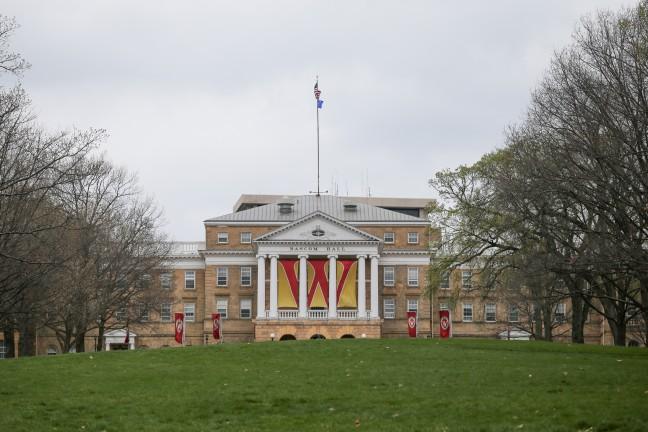Gov. Scott Walker’s relationship with higher education has been bad from the get-go.
One of his opponents’ main critiques is he dropped out of school at Marquette University and never received a degree. A peek into the language of Walker’s budget shows he’s adamant to maintain his poor relationship with higher education in the state. The 2015-17 biennial budget includes a $250 million cut to the University of Wisconsin System, eliminates current tenure laws and includes major reforms to shared governance.
It may be Walker’s history with college education that explains his animosity for academia, but one thing is certain: these cuts will severely undermine Wisconsin’s world-class public university system.
The proposed budget cuts have been a political issue for some time now. Supporters of the status quo fear that Walker’s cuts will force the university to lay off faculty, causing an increase in class size that already have sizable student populations. UW is one of the United States’ premier academic research facilities, a status the institution may lose due to the Walker’s draconian cuts.
Which faculty members get nixed is also something the administration will have to consider. It seems likely that those who are near or above retirement age, who tend to be tenured and experienced, will be the first to lose their positions because it costs the university more to support their employment than the newcomers. Tenure was another contentious issue in the Walker budget, which will no longer be enshrined in state law. Now, the Board of Regents will handle the operation and implementation of tenure.
At first glance, this doesn’t seem like a malicious move, but the ramifications of discarding tenure protections in state law could cause irreversible alterations to academic discourse at state universities.
Before the proposed change, a tenured faculty member could only be dismissed if there was just cause or a financial emergency. With the new budget, tenured officials can be released whenever it is “deemed necessary.” However, the Board of Regents has passed a resolution to adopt the tenure policy as it previously stood in state statue. But, as it stands the vagueness of this new language could be a catalyst for the disappearance of the UW System’s most distinguished employees.
Lighter financial quandaries are now justifiable grounds for termination, unlike before when termination had to be based on financial emergencies. Excellent faculty could be poached to other universities, taking their research funding with them.
Tenured or not, faculty will lose power in choosing how the university is run with the reworking of shared governance laws. Faculty used to make up a majority of panel members who decide whom their administrators (specifically the chancellor) will be, but with the new rules they will make up a minority. They will also lose the power to lead the search for new recruits. Undoubtedly, this will widen the gap between faculty and administrators, and will lead to more tension between two invaluable structures of a functioning university.
It may or may not be a coincidence that the state leading the assault on higher education is run by a governor who failed to complete his degree, but it is clear the Republican-controlled Wisconsin state government is aiming to strip power over public universities from those whom attend and facilitate it.
The budget cuts, elimination of tenure and shared governance revisions structure the public university system into a body that is more concerned about the state’s financial stability than academic excellence. And when every $1 invested in UW creates $24.14 in state economic activity, it becomes a regressive move from all standpoints.
Wisconsin’s state motto may be “Forward,” but from now on when we want to talk about the state’s excellent academic institutions, we’ll have to look to the past.








